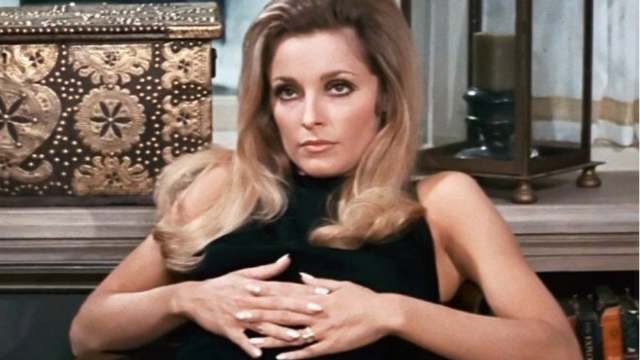Sharon Tate, born in 1943 in Dallas, Texas, was an actress celebrated for her beauty and talent, best known for her role as Jennifer North in the 1967 film Valley of the Dolls.
As a rising star in Hollywood, she was poised for greater success and was about to welcome her first child with husband Roman Polanski.
However, her life was tragically cut short on August 9, 1969, when she was murdered by followers of Charles Manson in her Los Angeles home, an event that shocked the nation.

Tate’s story is particularly poignant given that she was almost nine months pregnant at the time of her death.
She and Polanski had recently moved into their home at 10050 Cielo Drive, a location previously associated with a music producer who had crossed paths with Manson.
On that fateful night, Manson’s followers, believing they were fulfilling his orders, broke into the home where Tate and several friends were gathered.
The group included celebrity hairstylist Jay Sebring, coffee heiress Abigail Folger, and her boyfriend Voytek Frykowski. The gruesome murder left a lasting scar on American society and Hollywood.
In the aftermath of her death, Tate was often remembered not just for her tragic fate but also for her potential and the promising career she had ahead of her.
Her murder became a symbol of the chaos of the late 1960s, leading to widespread media coverage and public fascination.

The case would go on to influence countless films and documentaries, with recent portrayals, such as Margot Robbie’s depiction in Quentin Tarantino’s Once Upon a Time in Hollywood, reigniting interest in her life and legacy.
The impact of Sharon Tate’s story extends beyond her untimely death; it serves as a reminder of the violence that can lurk beneath the surface of fame and success, making her a poignant figure in Hollywood history.





